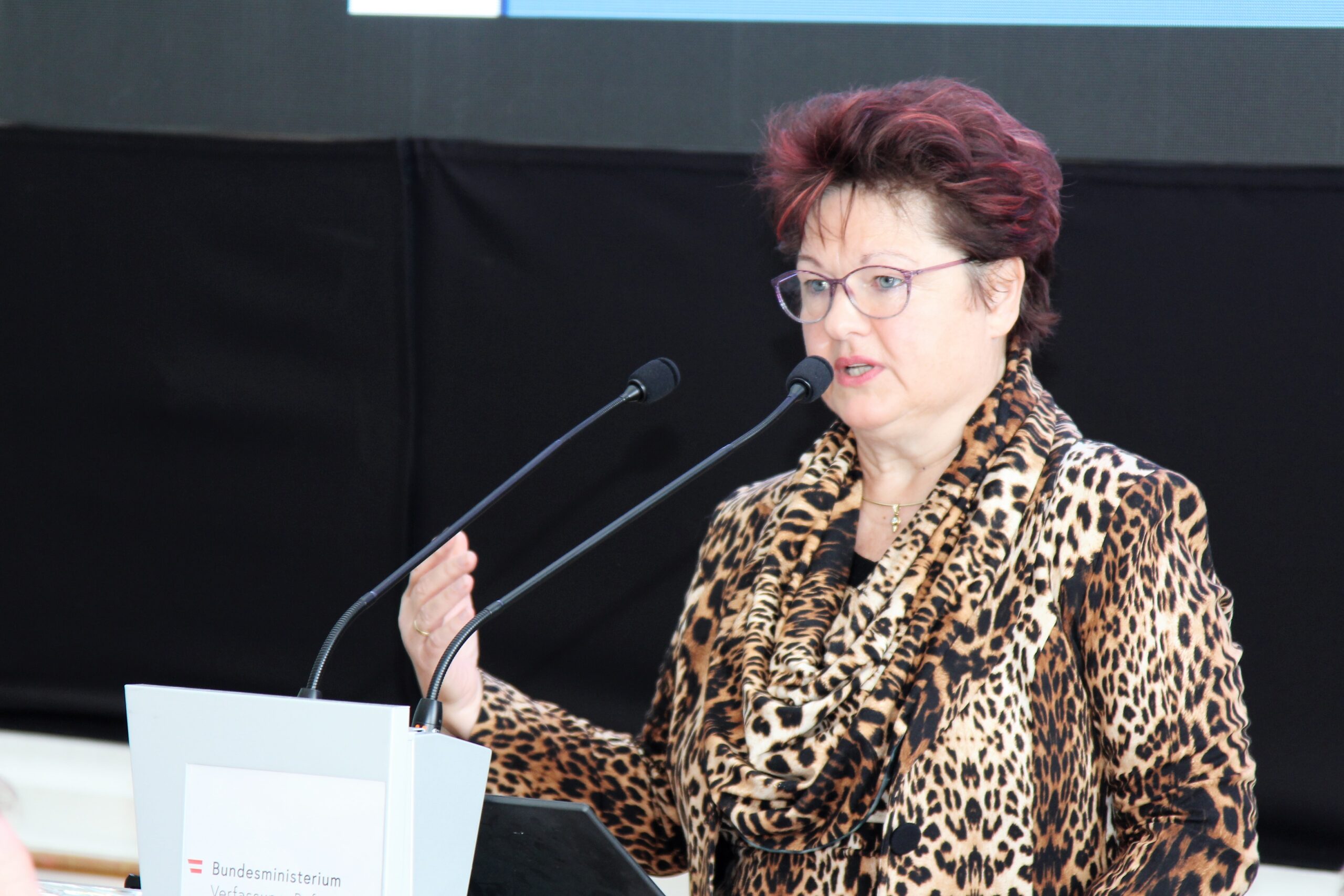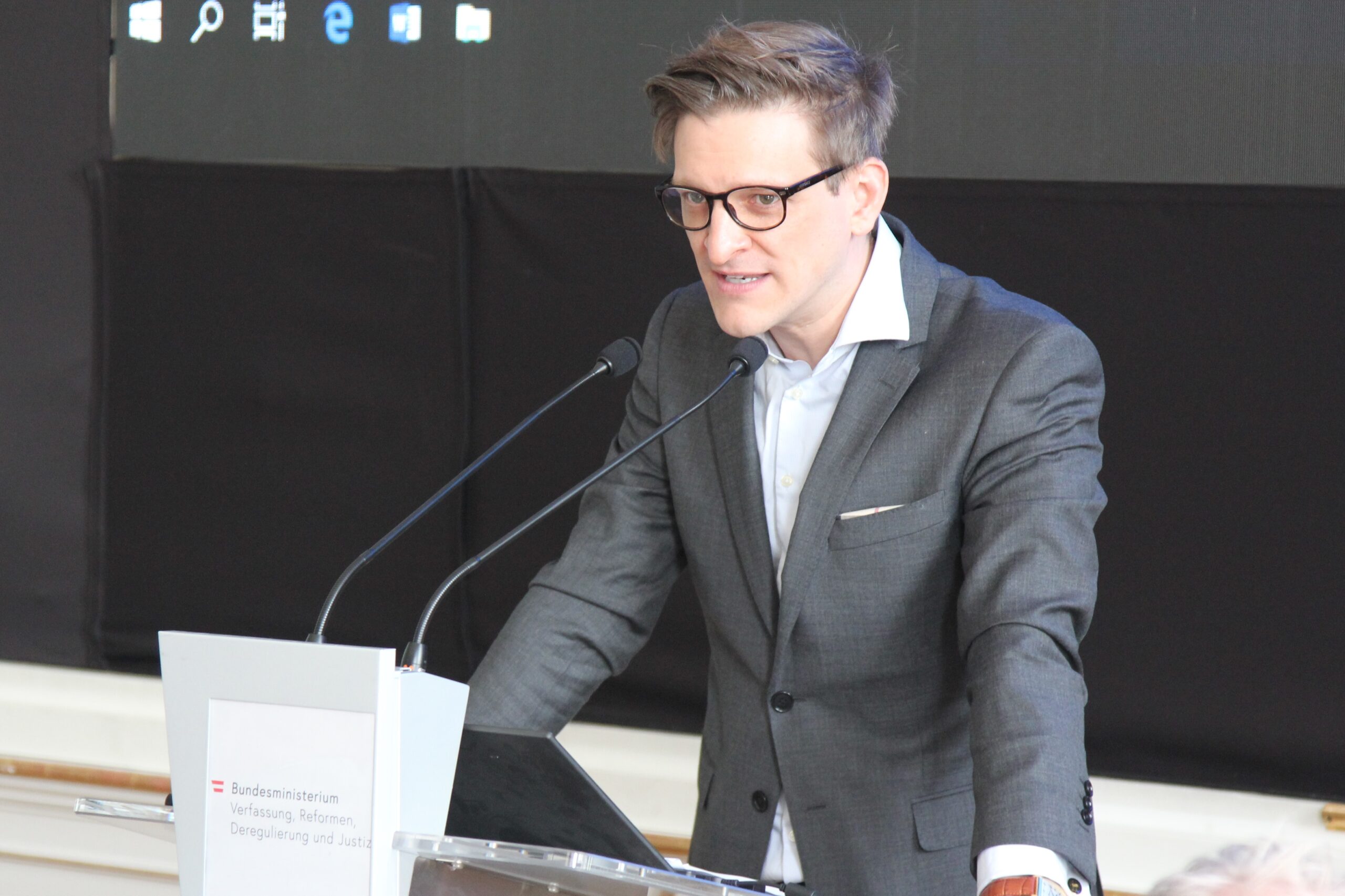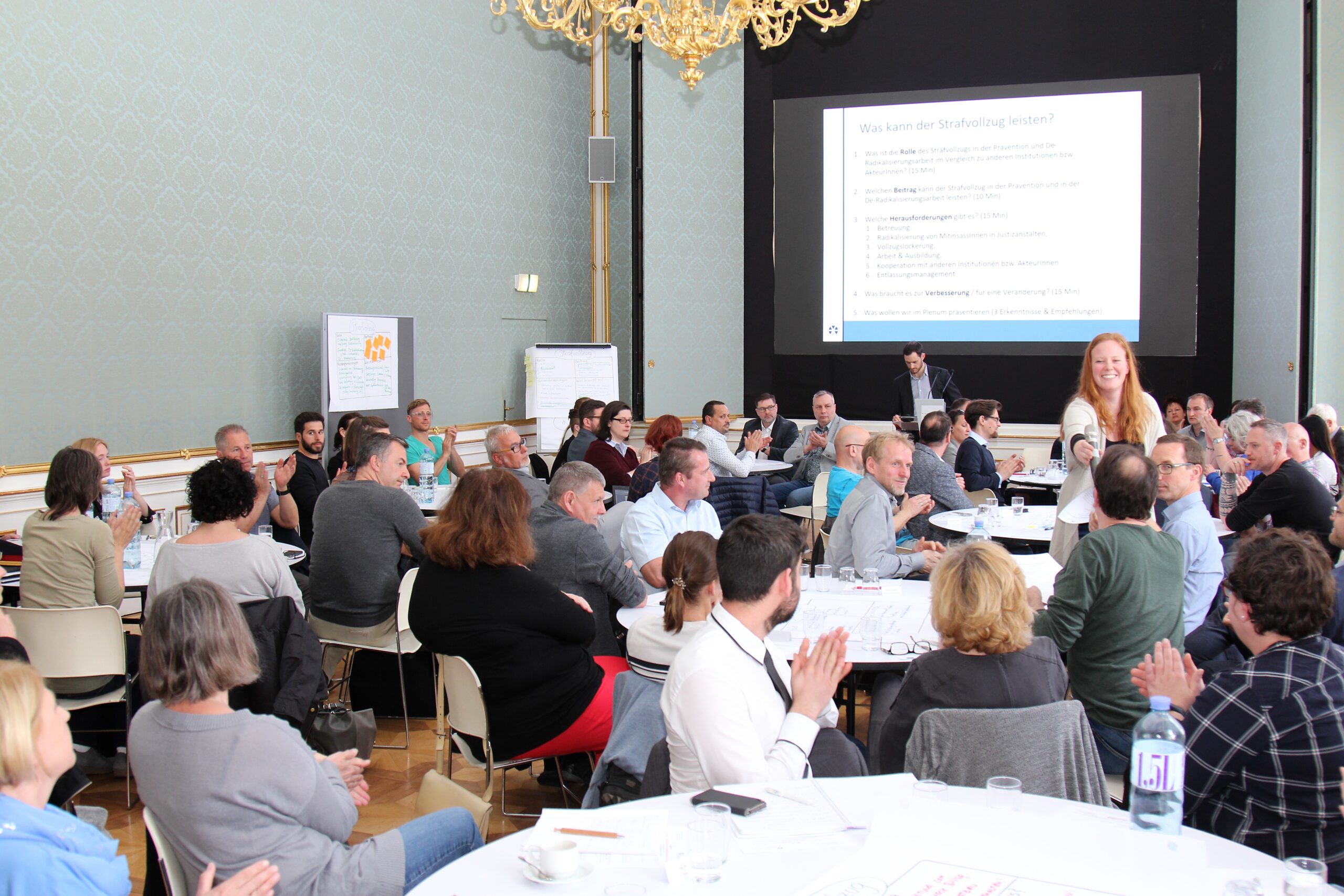Conference: Strategies and Programmes for De-radicalization and Risk Assessment in Prisons
Tue, 9 April 2019 – 9:00 to 17:00
Bundesministerium für Verfassung, Reformen, Deregulierung und Justiz, Wien, Österreich
On 9 April 2019 the Ludwig Boltzmann Institute for Human Rights and the Federal Ministry for Constitutional Affairs, Reforms, Deregulation and Justice hosted a conference for the EU research project ‘Strategies and Programmes for De-radicalization and Risk Assessment’.
For the first time, representatives of the major professional groups in prisons got together and discussed the roles, possibilities and challenges concerning de-radicalization and extremism prevention in the criminal justice system. In 2016, an initial evaluation took place via a concomitant research project on “Deradicalisation in Austrian Prisons” by the Institute for the Sociology of Law and Criminology (Institut für Rechtskriminologie und Soziologie -IRKS).
As a result of this EU project, the Directorate General for the Prison Service and Preventive Detention agreed to have the implemented measures re-evaluated by the Ludwig Boltzmann Institute of Human Rights regarding the resocialization of radicalized offenders.
Around 70 persons (amongst others heads of prisons, commanders and other prison officers, social workers, psychologists and further representatives of DERAD, NEUSTART, BVT, OIIP and Beratungsstelle Extremismus) debated the strategies and measures developed by the task force on de-radicalization in the criminal justice system.
Among other things, prison personnel emphasized that since 2014 a multiplicity of experiences with persons accused or sentenced under §278b et seq. of the Criminal Code could be collected. It was emphasized that the prison system should present itself professionally and self-confidently to the outside world.
The decision to hold this group of offenders not in separate wings or institutions but in accordance with the principle of normality and by taking into account the individual requirements of security, care and (re-)integration was confirmed. However, in order to be able to successfully continue the de-radicalization and (re-)integration measures initiated during imprisonment also after the detention has ended, further legal reforms are needed, particularly in the area of foreigners and asylum law.
The results of the conference and a project report will be presented and published by the Ludwig Boltzmann Institute of Human Rights at another conference held in October 2019.


